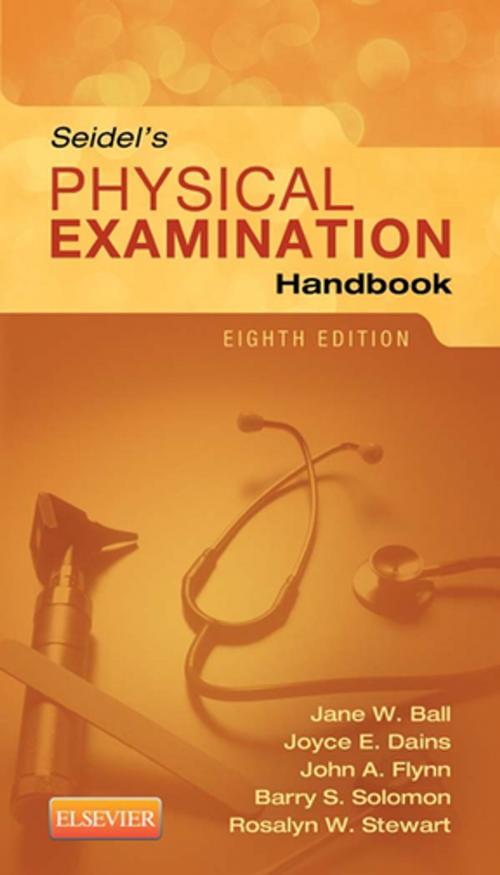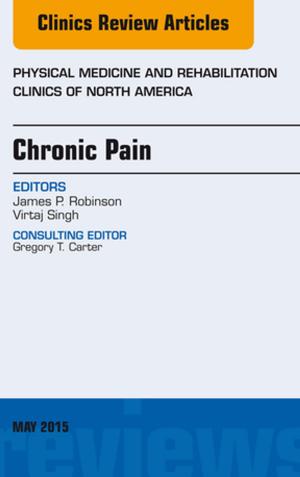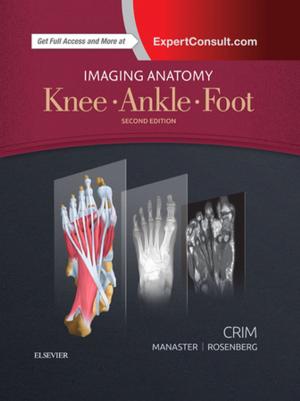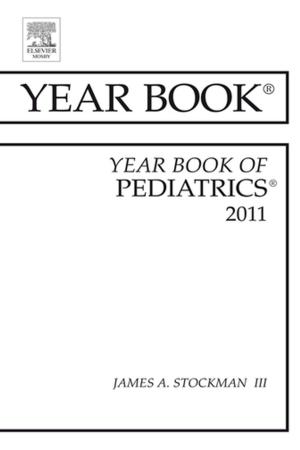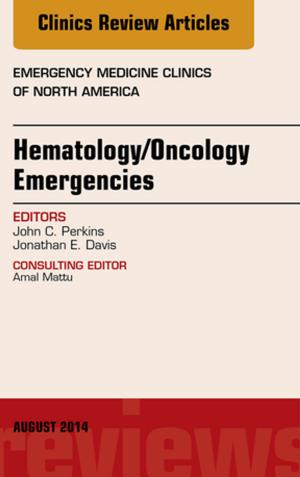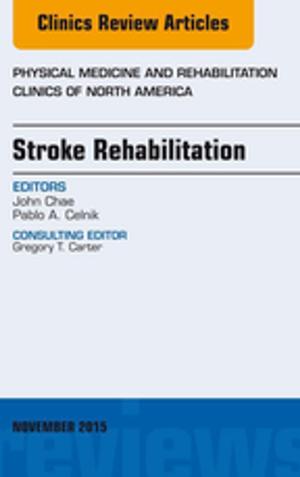| Author: | Jane W. Ball, RN, DrPH, CPNP, Joyce E. Dains, DrPH, JD, RN, FNP-BC, FNAP, FAANP, John A. Flynn, MD, MBA, MEd, Barry S. Solomon, MD, MPH, Rosalyn W. Stewart, MD, MS, MBA | ISBN: | 9780323172219 |
| Publisher: | Elsevier Health Sciences | Publication: | September 5, 2014 |
| Imprint: | Mosby | Language: | English |
| Author: | Jane W. Ball, RN, DrPH, CPNP, Joyce E. Dains, DrPH, JD, RN, FNP-BC, FNAP, FAANP, John A. Flynn, MD, MBA, MEd, Barry S. Solomon, MD, MPH, Rosalyn W. Stewart, MD, MS, MBA |
| ISBN: | 9780323172219 |
| Publisher: | Elsevier Health Sciences |
| Publication: | September 5, 2014 |
| Imprint: | Mosby |
| Language: | English |
Be prepared in any clinical setting with this portable, full-color, illustrated guide. Examination tables and Aids to Differential Diagnosis tables provide easy access to the physical exam in a two-column format for each system exam. Key information includes differential diagnosis tips, pediatric variations, sample documentation, and other helpful assessment data for quick reference. Separate chapters cover age-specific exams for infants, children, adolescents, and older adults, the healthy female evaluation, as well as reporting and documenting findings for computerized charting.
-
Examination tables offer quick and reliable reference to key exam steps and what to expect.
-
Aids to Differential Diagnosis tables summarize distinguishing characteristics of abnormalities, furnishing you with clues for identifying characteristic symptoms and diagnosing patient problems.
-
Sample Documentation sections at the end of system chapters promote concise yet thorough patient charting for each system exam.
-
Equipment Lists, indicating needed items in preparation for each system exam, facilitate efficiency in the practice setting.
-
Color-coded Pediatric Variations tablesprovide a resource on differences in findings and developmental considerations for pediatric patients.
-
Updated Computerized Charting content reflects the shift to electronic charting in clinical practice and equips you with a current resource on what and how to chart patient data.
-
Over 200full-color illustrations on anatomy and physiology, exam procedures, and normal and abnormal findings offer a visual reference to performing exams and anticipated and unanticipated findings in this highly visual field.
-
NEW! Updated Content throughout the book reflects the latest research and evidence-based practice to supply you with a best-practice approach to the physical exam.
-
NEW! Vital Signs and Pain Assessment chapter groups important foundational and frequently-used tasks together for easy reference.
-
NEW! Age-Specific Examination: Special Populations and Older Adults chapter makes it easy to locate specific variations in assessment for older adults with special needs.
Be prepared in any clinical setting with this portable, full-color, illustrated guide. Examination tables and Aids to Differential Diagnosis tables provide easy access to the physical exam in a two-column format for each system exam. Key information includes differential diagnosis tips, pediatric variations, sample documentation, and other helpful assessment data for quick reference. Separate chapters cover age-specific exams for infants, children, adolescents, and older adults, the healthy female evaluation, as well as reporting and documenting findings for computerized charting.
-
Examination tables offer quick and reliable reference to key exam steps and what to expect.
-
Aids to Differential Diagnosis tables summarize distinguishing characteristics of abnormalities, furnishing you with clues for identifying characteristic symptoms and diagnosing patient problems.
-
Sample Documentation sections at the end of system chapters promote concise yet thorough patient charting for each system exam.
-
Equipment Lists, indicating needed items in preparation for each system exam, facilitate efficiency in the practice setting.
-
Color-coded Pediatric Variations tablesprovide a resource on differences in findings and developmental considerations for pediatric patients.
-
Updated Computerized Charting content reflects the shift to electronic charting in clinical practice and equips you with a current resource on what and how to chart patient data.
-
Over 200full-color illustrations on anatomy and physiology, exam procedures, and normal and abnormal findings offer a visual reference to performing exams and anticipated and unanticipated findings in this highly visual field.
-
NEW! Updated Content throughout the book reflects the latest research and evidence-based practice to supply you with a best-practice approach to the physical exam.
-
NEW! Vital Signs and Pain Assessment chapter groups important foundational and frequently-used tasks together for easy reference.
-
NEW! Age-Specific Examination: Special Populations and Older Adults chapter makes it easy to locate specific variations in assessment for older adults with special needs.
